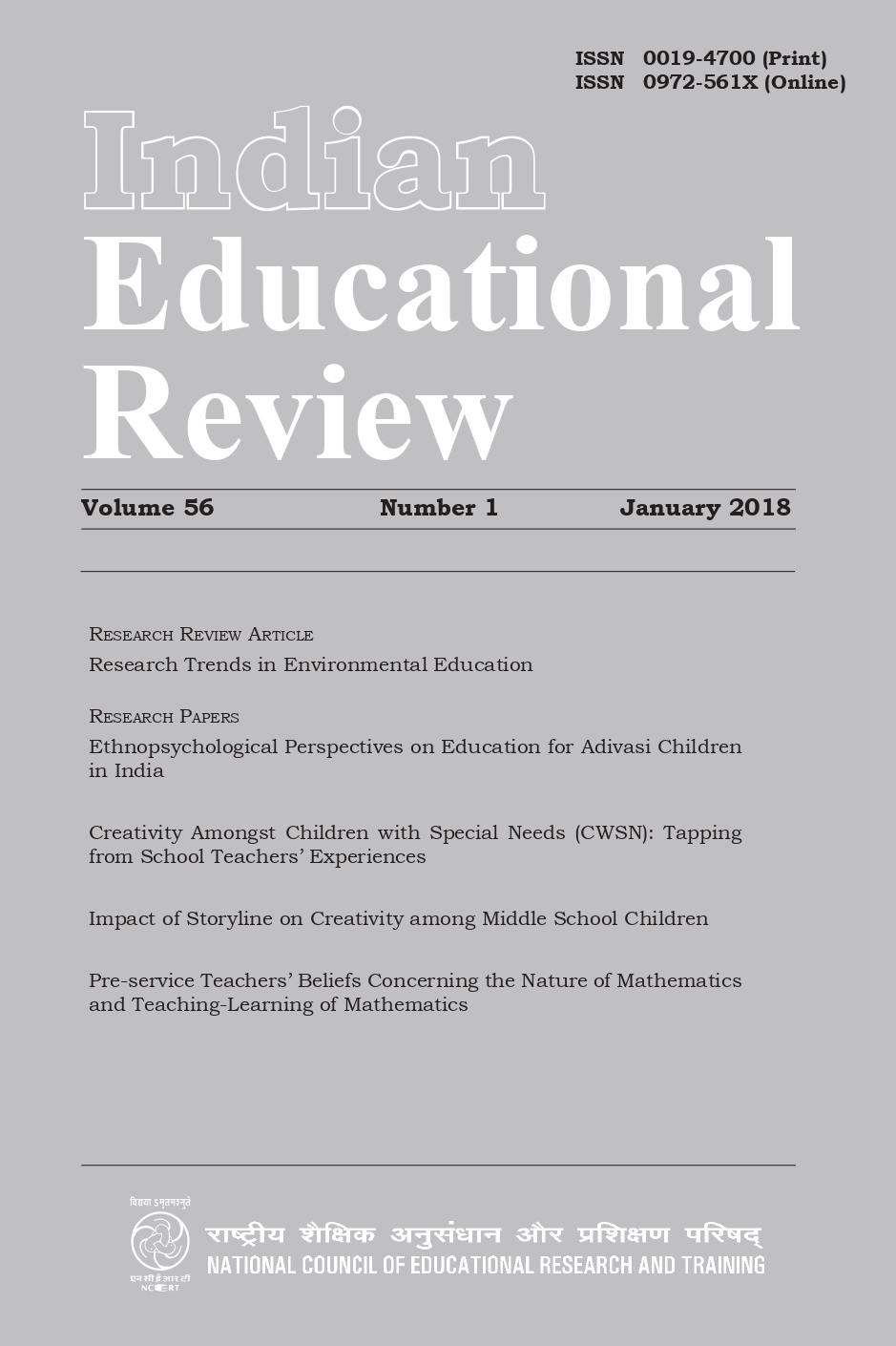Published 2018-01-31
Keywords
- Tribal Education,
- National Curriculum Framework (2005)
How to Cite
Abstract
Acknowledgement of heterogeneity of cultural identities figures prominently on the agenda of sustainable development. In this context, Adivasi (tribal) communities in India assume the status of marginalised communities owing to disadvantages accruing from their societal positioning. Living in diverse ecological settings and pursuing lives with cultural uniqueness exhibited in the patterns of livelihood, settlement, language use and religion, they are differentiated from the ‘mainstream’. Following the norms of equity and equality the official provisions of affirmative action have offered a set of measures including introduction of (modern) education. Education of this sort was conceived to be a source of modernisation and social change to bring them closer to the mainstream. Against this backdrop, the paper examines the progress of education of the Adivasi children and their social representation, emerging identity concerns and explores the possible choices. To this end, educational policy and practices of formal education are analysed from ethno-psychological perspective and some relevant pedagogical interventions are outlined for the educational development of Adivasi children.

